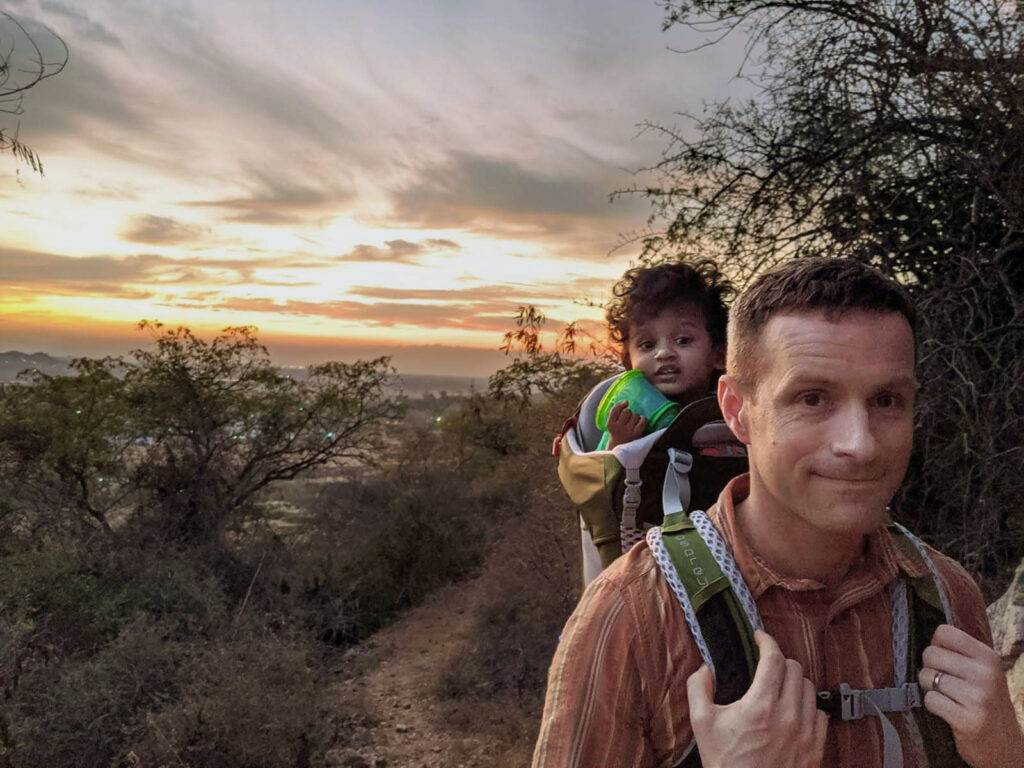Adoption Laws Simplified: What Every Prospective Parent Should Know
Adopting a child is a profound and life-changing decision. Prospective parents must go through a rigorous process that involves navigating adoption laws. Understanding these laws is crucial in ensuring a smooth and successful adoption journey. In this article, we will simplify adoption laws and provide valuable insights for every prospective parent. Let’s dive in and explore the various aspects of adoption laws that you need to be aware of.
Understanding Adoption Laws
Adoption laws are complex and vary from state to state and need the services of best family lawyers. However, at their core, these laws are designed to regulate the adoption process and protect the best interests of the child, the birth parents, and the prospective adoptive parents.
Adoption is a legal process that establishes a permanent parent-child relationship between individuals who are not biologically related. It provides a child with a loving and stable home when their birth parents are unable to care for them. Adoption laws play a crucial role in ensuring that this process is carried out ethically and with the child’s best interests in mind.
Each state has its own set of adoption laws, which can make the process seem overwhelming. However, by familiarizing yourself with the basics of adoption laws, you can navigate through the complexities and make informed decisions.
The Basics of Adoption Laws
Adoption laws outline the legal procedures and requirements for adopting a child. These laws cover various aspects, including eligibility criteria, home studies, matching with a child, and finalization of the adoption.
Eligibility criteria typically include factors such as age, marital status, and financial stability. These requirements ensure that prospective adoptive parents are capable of providing a safe and nurturing environment for the child.

Home studies are an essential part of the adoption process. They involve a thorough assessment of the prospective adoptive parents’ home and lifestyle to ensure that it meets the necessary standards for raising a child. The home study also includes interviews, background checks, and references to assess the suitability of the adoptive parents.
Matching with a child involves finding the right fit between the prospective adoptive parents and the child. Adoption agencies or social workers take into consideration factors such as the child’s age, background, and specific needs, as well as the preferences of the adoptive parents. The goal is to create a successful and harmonious match that will benefit both the child and the adoptive family. Click here to get about prenuptial agreements.
Finalization of the adoption is the legal process that establishes the adoptive parents as the child’s legal parents. This typically occurs after a period of foster care or a trial placement. The finalization process involves a court hearing where a judge reviews the adoption case and grants the legal adoption order.
The Importance of Knowing Adoption Laws
Being knowledgeable about adoption laws is crucial for prospective parents. It enables them to make informed decisions and ensures that they meet all legal requirements. Understanding adoption laws also helps in managing expectations and anticipating the challenges that may arise during the adoption process.
By understanding adoption laws, prospective parents can navigate through the complexities of the adoption process with confidence. They can seek appropriate legal counsel, work effectively with adoption agencies or social workers, and advocate for the best interests of the child.
Moreover, knowing adoption laws allows prospective parents to be aware of their rights and responsibilities throughout the adoption journey. It empowers them to actively participate in the decision-making process and advocate for their own interests while prioritizing the well-being of the child.
Adoption is a life-changing decision, and having a solid understanding of adoption laws is essential for a successful and smooth adoption process. By educating themselves about the legal aspects of adoption, prospective parents can embark on their adoption journey with confidence, knowing that they are well-prepared to navigate the complexities and provide a loving home for a child in need.
Types of Adoption
There are different types of adoption available to prospective parents. Each type has its own set of considerations and legal requirements. Let’s explore some of the common types:
Domestic Adoption
Domestic adoption involves adopting a child who is a citizen of the same country as the prospective parents. It is often a preferred choice for those who wish to adopt within their own community and culture. Domestic adoption laws may differ depending on the state you reside in.
When considering domestic adoption, prospective parents have the opportunity to connect with local adoption agencies or adoption attorneys who specialize in this type of adoption. These professionals can guide them through the process, which typically involves home studies, background checks, and interviews to ensure that the adoptive parents are suitable and capable of providing a loving and stable home for the child.
Once a match is made between the prospective parents and a birth mother or birth parents, legal procedures are followed to ensure that the adoption is finalized. This may include court hearings and the termination of parental rights of the birth parents. Domestic adoption provides an opportunity for the adoptive parents to establish a relationship with the birth parents, if desired, and maintain ongoing contact through letters, pictures, or even visits.
International Adoption
International adoption refers to adopting a child from a country outside of your own. It involves navigating both the adoption laws of your own country and the regulations of the child’s birth country. International adoption laws can be complex due to the involvement of multiple jurisdictions.
When pursuing international adoption, prospective parents must first research and select a reputable international adoption agency that specializes in the country they wish to adopt from. These agencies assist in the process of matching prospective parents with children who are legally available for adoption.
International adoption often requires prospective parents to travel to the child’s birth country to complete the necessary paperwork, attend court hearings, and bring the child back to their home country. This process can vary in length and complexity depending on the country involved.
One of the unique aspects of international adoption is the opportunity for prospective parents to learn about and immerse themselves in the culture and heritage of their adopted child. This can include learning the child’s native language, participating in cultural events, and maintaining connections with the child’s birth country and community.

Open vs. Closed Adoption
Open adoption allows for ongoing contact and relationship between the adoptive family, the birth parents, and the child. Closed adoption, on the other hand, does not involve ongoing contact with the birth parents. Legal requirements and regulations may vary depending on the chosen adoption type.
In an open adoption, the adoptive parents and birth parents have the opportunity to establish a relationship and maintain contact throughout the child’s life. This can include exchanging letters, emails, phone calls, or even in-person visits. Open adoption provides the child with the opportunity to have a sense of identity and connection to their birth family while also benefiting from the love and support of their adoptive family.
Closed adoption, on the other hand, involves no ongoing contact between the adoptive family and the birth parents. In these cases, all identifying information about the birth parents is typically sealed, and the child may not have access to their birth family’s medical history or background information. Closed adoption was more common in the past but has become less prevalent in recent years.
It is important for prospective adoptive parents to carefully consider their preferences and comfort levels when deciding between open and closed adoption. They should also be aware of the legal requirements and regulations surrounding each type, as these can vary depending on the jurisdiction.
The Adoption Process
The adoption process is a step-by-step journey that prospective parents must follow to bring a child into their lives. It is a complex and emotional process that requires careful consideration and preparation. Let’s look at the key stages of the adoption process in more detail:
Home Study and Approval
A home study is an essential part of the adoption process. It involves a comprehensive evaluation of the prospective adoptive family to ensure that they can provide a safe and nurturing environment for the child. The home study includes interviews, background checks, and home visits by a licensed adoption professional.
During the interviews, the adoption professional will ask the prospective parents about their motivations for adoption, their parenting style, and their ability to meet the physical, emotional, and financial needs of a child. The background checks will verify the prospective parents’ criminal records, employment history, and financial stability. The home visits allow the adoption professional to assess the safety and suitability of the prospective parents’ home environment. Learn more steps to adoption.
Once the home study is completed and the prospective parents are approved, they can proceed to the next stage of the adoption process.
Matching with a Child
Once approved, prospective parents can begin the process of matching with a child. This is an exciting and nerve-wracking stage, as it involves finding the right child who will fit well with the family’s dynamics and preferences.
Matching with a child can be done through various means, such as working with an adoption agency or adoption attorney. These professionals will present potential adoption opportunities to the prospective parents, based on their preferences and the needs of the child. The matching process takes into account factors such as the child’s age, gender, background, and any specific needs or challenges they may have.

Prospective parents may be presented with profiles of children who are available for adoption, and they will have the opportunity to review these profiles and consider whether they would be a good match for their family. It is important for the prospective parents to carefully evaluate their own capabilities and resources to ensure that they can provide the necessary care and support for the child.
Once a potential match is identified, the prospective parents and the child may have the opportunity to meet and spend time together to establish a connection and determine if it is a good fit. This process can be both exciting and emotionally challenging, as the prospective parents may feel a mix of hope, fear, and anticipation.
After a successful match is made, the adoption process moves on to the next stage.
Post-placement Visits and Finalization
After a child is placed with the adoptive family, post-placement visits are conducted to ensure that the placement is successful. These visits play a crucial role in assessing the child’s well-being and providing support to both the adoptive family and the child.
The adoption professional will visit the adoptive family’s home at regular intervals to observe the child’s adjustment and integration into the family. They will provide guidance and support to the adoptive parents, addressing any concerns or challenges that may arise during the post-placement period.
These post-placement visits not only benefit the child and the adoptive family but also serve as an opportunity for the adoption professional to ensure that the adoption is progressing in accordance with legal requirements and ethical standards.
Once the post-placement visits are successfully completed, the adoption process culminates in the finalization of the adoption through a legal process. This step makes the adoption legally binding and grants the adoptive parents all the rights and responsibilities of biological parents.
It is important to note that the adoption process can vary depending on the country or state where it takes place. Each jurisdiction may have its own specific requirements and procedures. Prospective parents should seek guidance from adoption professionals or legal experts to navigate the adoption process successfully.
Legal Requirements for Prospective Adoptive Parents
Prospective adoptive parents must meet certain legal requirements to be eligible to adopt a child. Let’s explore some of the key requirements:
Age Requirements
Each jurisdiction has specific age requirements for prospective adoptive parents. Generally, individuals must be at least 18 years old to adopt, while some countries may have higher age limits. Age requirements ensure that adoptive parents are capable of providing long-term support and care for the child.
Marital Status and Sexual Orientation
Adoption laws have evolved to be more inclusive in recent years. Marital status and sexual orientation are no longer significant barriers to adoption in many jurisdictions. However, some countries may still have restrictions or limitations based on these factors. It is important to familiarize yourself with the laws applicable to your situation.
Financial Stability
Financial stability is a crucial consideration in adoption. Prospective parents must demonstrate their ability to provide for the child’s needs and ensure a stable and nurturing environment. This requirement helps protect the child’s best interests and ensures that they will be cared for adequately.
Adoption laws play a vital role in safeguarding the rights and well-being of all parties involved in the adoption process. As a prospective parent, it is essential to educate yourself on these laws to navigate the adoption journey successfully. By understanding adoption laws, knowing the different types of adoption, and meeting the legal requirements, you will be better prepared to embark on this rewarding path to parenthood.





